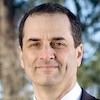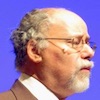
- This event has passed.
Webinar: #MakeClimateaClass: Resources for Online Education on Climate Solutions and Justice
August 12, 2020 @ 3:00 pm - 4:00 pm EDT
FreeSolve Climate by 2030 is mobilizing US educators of any discipline to engage their students in dialog about ambitious stabilizing the climate over the next decade. This project offers a template for discussion for groups from any state, to develop strategies to support the state-level policy ideas.
In April, the Solve Climate by 2030 project organized university-hosted climate solutions webinars featuring local experts in almost every state and 5 international locations. Educators can now assign these as homework, and then use the teachers’ guides for one-hour follow-on discussion in 25 subjects ranging from art, history, political science, engineering, natural sciences, art, music, economics and more. Climate change touches all subjects – use these resources to engage students in a critical conversation about climate solutions in your state.
Join this webinar to learn about easy ways to #MakeClimateaClass in this new world of distance education!
This webinar is organized in collaboration with the Higher Education Associations Sustainability Consortium (HEASC) and the Disciplinary Associations Network for Sustainability (DANS).
See Background Information below.
For members: watch on demand For members: archived webinars on demand Upcoming webinars
Presenters
 |
Eban Goodstein, Director, Center for Environmental Policy, Bard College Eban Goodstein directs Graduate Programs in Sustainability at Bard College. Professor Goodstein holds a Ph.D. in Economics from the University of Michigan, and a B.A. in Geology from Williams College. Goodstein is the author of three books: Economics and the Environment, Fighting for Love in the Century of Extinction; How Passion and Politics Can Stop Global Warming and The Trade-off Myth; Fact and Fiction about Jobs and the Environment. Articles by Goodstein have appeared among other outlets, The Journal of Environmental Economics and Management, Land Economics, Ecological Economics, and Environmental Management. His research has been featured in The New York Times, The Washington Post, Scientific American, Time, The Economist, USA Today, and The Chronicle of Higher Education, and he has testified in Congress on the employment impacts of environmental regulation. He serves on the editorial board of Sustainability: The Journal of Record, has been an Advisor to Chevrolet on their Clean Energy Initiative, and a Director of the Follett Corporation. |
 |
David Blockstein, Project Director, Solve Climate By 2030, Bard Center for Environmental Policy David E. Blockstein, Ph.D. is an ecologist and conservation biologist with more than 30 years of national leadership at the interface of science and environmental policy. Dr. Blockstein has worked on a wide range of science and policy issues including climate change and energy education, biodiversity policy, sustainability, increasing the representation of minorities in science, mechanisms to improve the linkages between science and decision making on environmental issues, and digital communication of scientific information on the environment. Dr. Blockstein helped to create the National Council for Science and the Environment (NCSE), with a mission to improve the scientific basis of environmental decisionmaking and served as its first Executive Director in 1990. He held a variety of leadership positions at NCSE until leaving as Chief Scientist in 2018. Dr. Blockstein helped to shape interdisciplinary environmental, sustainability and energy education at US colleges and universities by founding and helping to lead the Council of Environmental Deans and Directors (CEDD), the Council of Energy Research and Education Leaders (CEREL), the US Partnership for Education for Sustainable Development and the Association for Environmental Studies and Sciences (AESS), where he currently serves as senior adviser. He is the recipient of the American Institute of Biological Sciences (AIBS) Distinguished Service Award. |
Background Information
Power Dialogs are a tool to mobilize educators across the planet to provide young people with realistic optimism that for fundamental economic reasons, the world is heading towards an energy system powered by 100% renewables. Students and community members can and must use their power to accelerate market trends towards renewable power, and put countries across the world in a position to solve the energy half of climate change by 2030. Key actions will be at state and local levels: setting ambitious goals and policies, and clearing away barriers.
On April 7 2020 universities and colleges in 45 states, DC and Puerto Rico and in 5 other nations held Power Dialogs – webinars on climate solutions, clean energy and climate justice. Dialogs featured local experts who identified actions to “SolveClimateby2030”. Each webinar was organized by a faculty member, staff or student who recruited diverse speakers – governors, legislators, regulators, researchers, educators, students, and activists. Their ideas were collated into the first national compilation of state-level solutions to the climate emergency.
Dialogs were planned to be in-person events to be shown live to students and faculty and community members. With the onset of covid-19, the project transitioned to an online-only format and engaged 5,000+ participants directly. The webinars were recorded and posted at www.solveClimateby2030.org providing an opportunity for online education about climate solutions and climate justice to #MakeClimateaClass. College and high school teachers can assign the webinars as homework and then discuss them in class. Teachers guides for one-hour follow-on discussion in 25 subjects range from art, history, political science, engineering, natural sciences, art, music, economics and more. Thousands of people have subsequently viewed the recorded versions of the webinars. The 2021 Dialog will be more international.
The Dialogs demonstrate that coordinated civic education can simultaneously engage thousands of individuals in developing climate solutions. Leading a webinar for their state enabled faculty, staff and students to step into new roles as conveners of climate education. The flexible format allowed a quick transition to the new world of online education. It is now possible to compare climate justice and GHG emission strategies in nearly 50 states and 5 nations. Educators now can assign students to view webinars in their home state or in other states and to use discussion guides to compare state and international solutions using the lenses of 25 disciplines. Students and other viewers are able to use climate solutions for their states to query and evaluate political candidates. Students are provided with “realistic optimism” that just climate solutions are possible, but that they need to be involved to make the solutions happen.